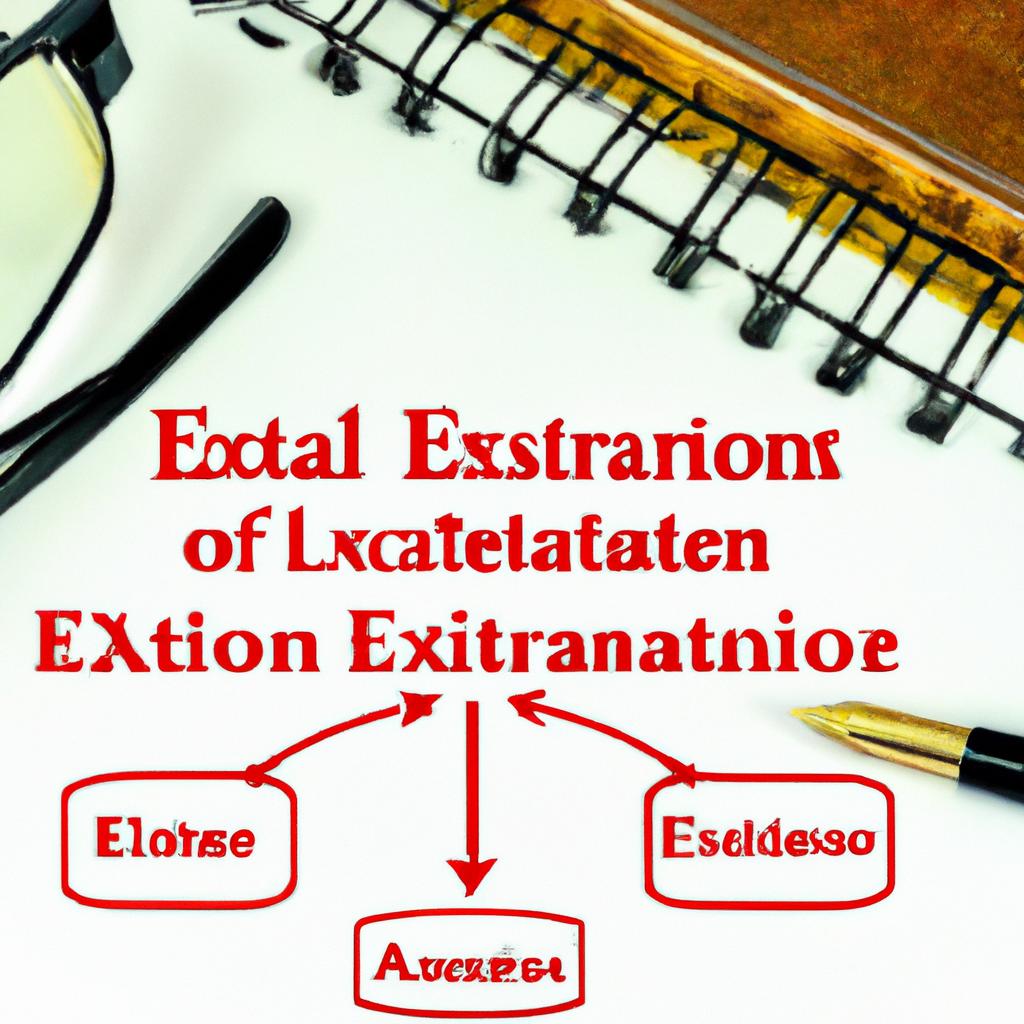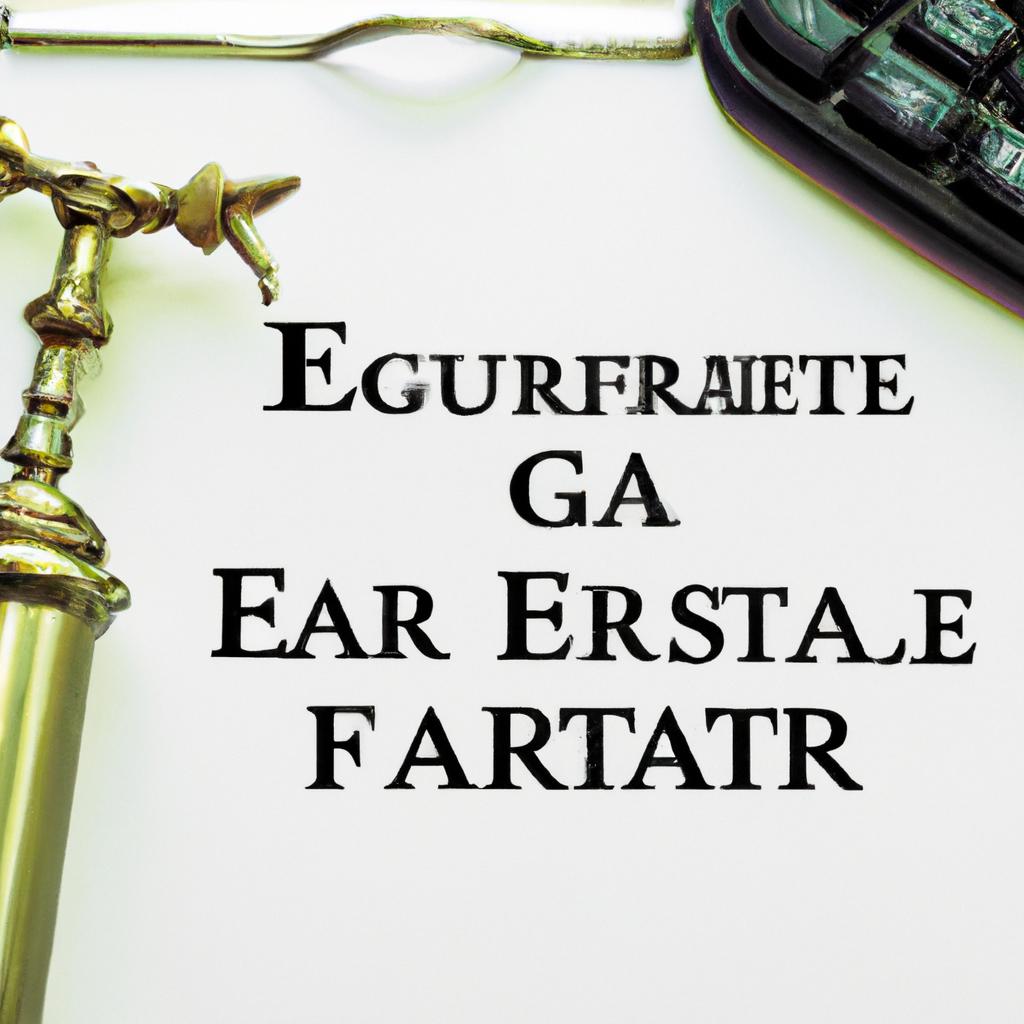Navigating the complex process of estate administration can be overwhelming, particularly when faced with the decision of whether to appoint an executor and what fees they may be entitled to for their services. As experienced attorneys at Morgan Legal Group in New York City, we understand the importance of providing clarity and guidance in matters of estate planning and administration. In this article, we will delve into the intricacies of the fees associated with appointing an executor of an estate, ensuring our readers are well-informed and empowered to make the best decisions for their estate planning needs.
Understanding the Role of the Executor in Estate Administration
In the process of estate administration, the executor plays a crucial role in ensuring that the deceased’s wishes are carried out in a timely and efficient manner. One important aspect that often arises when discussing the responsibilities of an executor is the question of compensation. Executors are entitled to receive a fee for their services, which is typically a percentage of the estate’s value. This fee is meant to compensate the executor for the time and effort they put into managing the estate and carrying out their duties.
It is important to note that the fee for an executor is not set in stone and can vary depending on the complexity of the estate and the amount of work involved. The executor’s fee is typically determined by state law or by the terms of the deceased’s will. In some cases, the executor may choose to waive their fee, especially if they are a family member or close friend of the deceased. If you have been appointed as an executor and are unsure about the appropriate fee to request, it is advisable to seek guidance from a legal professional who specializes in estate administration.

Factors to Consider When Determining Executor Fees
When determining executor fees for an estate, there are several factors that must be taken into consideration to ensure a fair compensation for the individual handling the deceased’s affairs. One important factor is the complexity of the estate itself. If the estate is large, has multiple properties, businesses, or investments, the executor’s responsibilities are likely to be more time-consuming and require a higher fee.
Another factor to consider is the state laws regarding executor fees. Some states have guidelines or limits on the compensation that can be paid to an executor. It is important to be aware of these laws to ensure that the fees being paid are in accordance with legal requirements. Additionally, the executor’s level of experience and expertise should also be considered when determining fees, as a more experienced executor may command a higher fee for their services.

Guidelines for Setting a Fair and Reasonable Executor Fee
When determining a fair and reasonable fee for an executor of an estate, it is important to consider several key guidelines to ensure transparency and fairness in the process. Executors play a crucial role in managing the affairs of the deceased and distributing assets according to their wishes. To set a fee that reflects the executor’s responsibilities and efforts, the following factors should be taken into account:
- Complexity of the Estate: The size and complexity of the estate can greatly impact the amount of work required by the executor. Larger estates with multiple assets, debts, and beneficiaries may require more time and effort to administer.
- Time and Effort Involved: The executor’s fee should reflect the time and effort they put into managing the estate, including tasks such as inventorying assets, paying debts, filing taxes, and distributing assets to beneficiaries.
| Executor Fee Guidelines | Recommendation |
|---|---|
| Flat Fee | 1-3% of the estate value |
| Hourly Rate | $100-$300 per hour |

Negotiating Executor Fees: Best Practices for Executors and Beneficiaries
When negotiating executor fees for an estate, both the executor and beneficiaries should approach the discussion with transparency and respect. It is important to establish clear expectations and responsibilities from the outset to avoid any misunderstandings or conflicts down the road. Here are some best practices for both parties to consider:
- Open Communication: Keep the lines of communication open between the executor and beneficiaries to ensure that everyone is on the same page regarding the fees.
- Transparency: Be transparent about the work being done by the executor and the time and effort involved in administering the estate.
- Fair Compensation: Consider the complexity of the estate, the size of the assets, and the market rates for executor fees when determining a fair compensation for the executor.
It is also important to keep in mind that executor fees can vary depending on the state laws and the specific circumstances of the estate. Consulting with an experienced estate planning attorney can help both parties navigate the negotiation process and reach a mutually agreeable fee arrangement that is fair and reasonable for all parties involved.
Q&A
Q: What is a fee for an executor of an estate?
A: A fee for an executor of an estate is the compensation that the person appointed to oversee the distribution of assets in a will receives for their services.
Q: How is the fee determined?
A: The fee for an executor of an estate is typically determined by state laws or by the terms set forth in the deceased person’s will.
Q: Can the executor choose to waive their fee?
A: Yes, an executor can choose to waive their fee if they wish to do so.
Q: What factors might affect the amount of the fee?
A: Factors that might affect the amount of the fee for an executor of an estate include the complexity of the estate, the amount of time and effort required, and the individual circumstances of the case.
Q: Are there any restrictions on the amount of the fee?
A: Some states have guidelines or restrictions on the amount that an executor can charge, while in other cases, the fee must be deemed reasonable by the court.
Q: Is the fee for an executor of an estate taxable?
A: Yes, the fee for an executor of an estate is considered taxable income and must be reported on their tax return.
Q: Are there any alternative ways for an executor to be compensated?
A: Some executors may choose to be compensated through a flat fee, hourly rate, or a percentage of the estate’s assets, rather than a traditional fee.
Q: Can an executor negotiate their fee?
A: Yes, an executor can negotiate their fee with the beneficiaries or seek approval from the court if there is a disagreement.
In Summary
In conclusion, understanding the fees associated with being an executor of an estate is crucial in order to navigate the probate process with clarity and confidence. While the responsibilities may seem daunting, knowing the ins and outs of compensation can help you properly allocate resources and ensure a smooth administration of the estate. By staying informed and seeking guidance when needed, you can fulfill your duties as an executor while honoring the wishes of the deceased. Remember, transparency and communication are key in this role, so don’t hesitate to reach out to legal professionals for assistance. Happy estate managing!
 Estate planning is an essential part of financial management, as it helps individuals ensure their assets are distributed according to their wishes after their passing. One crucial aspect of estate planning is the appointment of an executor, who is responsible for carrying out the deceased’s wishes and managing the estate’s assets. In return for their services, executors are entitled to a fee known as the “fee for executor of estate.” In this article, we’ll provide a comprehensive guide to understanding the executor of estate fee, its calculation, and other essential information you should know.
Estate planning is an essential part of financial management, as it helps individuals ensure their assets are distributed according to their wishes after their passing. One crucial aspect of estate planning is the appointment of an executor, who is responsible for carrying out the deceased’s wishes and managing the estate’s assets. In return for their services, executors are entitled to a fee known as the “fee for executor of estate.” In this article, we’ll provide a comprehensive guide to understanding the executor of estate fee, its calculation, and other essential information you should know.
What is the fee for executor of estate?
The executor of estate fee, also known as the “personal representative fee,” is a payment made to the executor or administrator of an estate for their services in carrying out the deceased’s wishes and managing their assets. This fee is typically paid from the estate’s assets and is subject to state laws and the will’s provisions.
How is the fee for executor of estate calculated?
The executor of estate fee is calculated based on the total value of the estate. The exact percentage or amount varies from state to state, ranging from 1% to 5% of the estate’s value. In some states, the executor fee may be capped at a certain percentage, while in others, it may be based on a sliding scale.
For example, let’s say the estate has a total value of $500,000, and the state’s executor fee is 2%. In this case, the executor would be entitled to a fee of $10,000 for their services. However, if the state’s executor fee is subject to a cap of $10,000, then the executor would only receive a fee of $10,000, even though the calculated fee would be $12,500.
Who determines the fee of executor of estate?
In most cases, the executor’s fee is determined by state laws. However, in some cases, the will may contain specific provisions regarding the executor’s compensation. In such situations, the executor’s fee would be determined based on the will’s provisions.
It’s worth noting that in some instances, the executor may request a higher fee if they feel their services have required significant time and effort. In such cases, it’s up to the beneficiaries to negotiate and come to an agreement with the executor regarding the fee.
What factors influence the fee for executor of estate?
Several factors can affect the amount of the executor fee, including the estate’s complexity, the executor’s experience and qualifications, and any special requests or demands made by the deceased in their will.
Complexity of the estate:
The complexity of the estate is one of the primary factors that influence the executor’s fee. If the estate is straightforward and requires minimal work, the executor’s fee may be lower. However, if the estate is complex, involving multiple assets, debts, or legal issues, the executor’s fee may be higher.
Executor’s experience and qualifications:
The executor’s experience and qualifications may also play a role in determining their fee. An executor who has a background in managing estates and has legal or financial expertise may command a higher fee than someone who has no previous experience.
Special requests or demands:
In some cases, the deceased may have specific requests or demands mentioned in their will that are outside the executor’s usual duties. For example, if the deceased has requested that the executor take care of their beloved pets or properties, the executor may request a higher fee to compensate for the additional responsibilities.
Other Essential Information to Know
While the executor of estate fee is typically considered reasonable compensation for their services, there are a few factors to keep in mind when determining the exact amount.
Tax implications:
In most cases, the executor fee is considered taxable income, and the executor is responsible for reporting it on their income tax return. Therefore, it’s essential to consult with a tax professional to understand the tax implications of the fee and plan accordingly.
Additional expenses:
The executor of estate fee is not the only expense that comes out of the estate’s assets. The executor may also be entitled to reimbursement for any out-of-pocket expenses incurred while handling the estate, such as court fees, travel expenses, or document preparation fees.
Alternatives to a fee:
In some cases, the estate may not have enough assets to pay the executor’s fee, especially if the estate has significant debts to be settled. In such situations, the executor may request that the beneficiaries agree to a lower fee or forego the fee entirely.
Benefits and Practical Tips
Choosing the right executor for your estate is a crucial decision and can save your loved ones significant time, effort, and potential conflicts. Consider the following tips when selecting an executor for your estate:
Choose someone trustworthy: The executor should be someone you trust to carry out your wishes and make decisions on your behalf.
Consider their qualifications: The executor should have sufficient knowledge and experience to handle your estate’s assets and any legal or financial matters that may arise.
Communicate your wishes clearly: Clearly outline your wishes in your will to avoid any confusion or disputes among your loved ones and the executor.
Communicate with your executor: It’s essential to keep your executor informed about your assets and any changes you make to your estate plan, especially if they are a family member or friend.
Case Studies and First-hand Experience
I recently went through the process of appointing an executor for my estate and learned some valuable lessons along the way. I chose my sister to be my executor, primarily because of her financial background and trustworthiness.
I made sure to communicate my wishes clearly and kept her updated on any changes to my estate plan. I also made sure to set aside enough assets to cover her potential fee and any out-of-pocket expenses she may incur.
Overall, the process was smooth and stress-free, thanks to the clear communication and trust between my sister and me. I highly recommend choosing an executor who is not only qualified but also someone you have a good relationship with.
Conclusion
The fee for executor of estate is an essential aspect of estate planning that ensures your final wishes are carried out and your assets are managed correctly. If you’re in the process of selecting an executor for your estate, make sure to consider their qualifications, communicate your wishes clearly, and plan for their potential fee and expenses. With the right executor by your side, you can have peace of mind that your estate will be handled according to your wishes.

